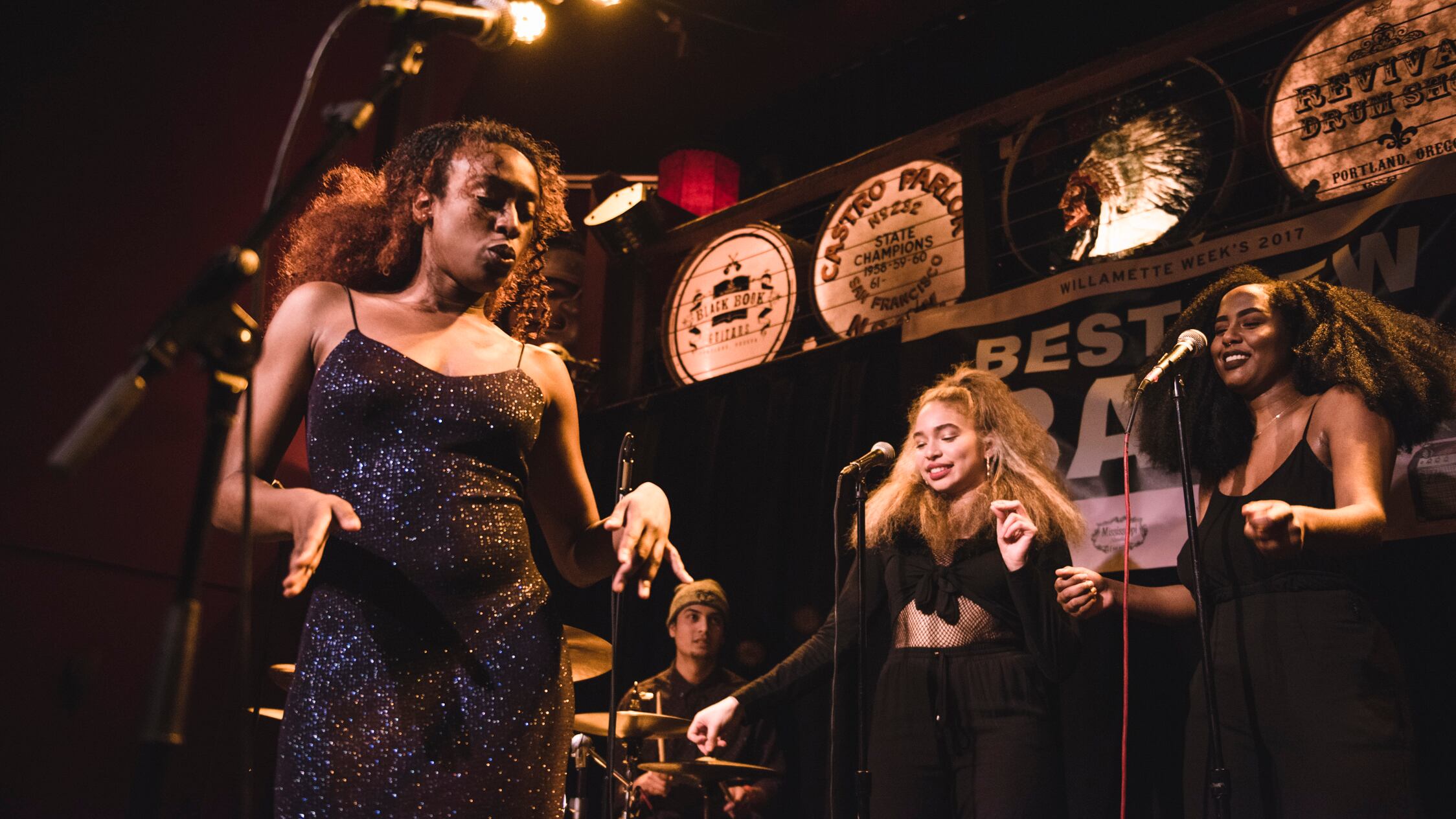Only a few months ago, Laurelthirst Public House was packed almost every night, hosting free concerts by local musicians seven days a week to some of the most devoted patrons in Portland.
But since the pandemic shut down the city's live music industry in March, the homey pub on Northeast Glisan Street—Portland's longest-running independent venue—has been empty, save for the bar's owners, who go in every few days to work on renovations and make sure the century-old building doesn't fall into disrepair.
"People talk about how there's, like, wildlife returning to Yellowstone Park and stuff," says Lewi Longmire, a music scene stalwart and a co-owner of the Laurelthirst. "That's also true if you have some building and you just don't go there. The spiders and bugs will take over the place when you're gone if you're not careful."
Music venues were among the first businesses to close due to the pandemic, and they'll be among the last to reopen. Businesses from neighborhood watering holes like the Laurelthirst to large halls like the McMenamins-owned Crystal Ballroom have been completely shut down and without revenue for over a month. They've received little government aid.
The Laurelthirst, like many other local venues, has turned to attrition measures. The club furloughed its 10 employees, eliminated nonessential bills like music licensing and is working with the Oregon Liquor Control Commission to suspend its liquor license. It held a growler sale to sell off its beer stock, designed new merch, and began a donation fund for the employees who were laid off. Longmire has been performing virtual concerts and donating all the money he raises back to the pub.
But for the city's midsized venues that have more overhead and calendars full of touring bands to manage, sheer scrappiness isn't enough. And even for small venues like the Laurelthirst, hand-to-mouth fundraising is hardly sustainable in the long term.
So in March, local venue owners founded the Independent Venue Coalition, to lobby local and state officials for music industry-specific financial relief.
"Every state, every region needs its own lobbying organization," says Jim Brunberg, owner of Mississippi Studios, Polaris Hall and Revolution Hall, and the founder of the IVC. "If we were in this by ourselves, each individual venue, we would just be crying in our beer."
The IVC represents over 100 independently run concert spaces across Oregon. Its lobbying efforts are primarily directed at acquiring financial assistance over a much longer period than what's currently available to small businesses. Brunberg says several local venues applied for, but did not receive, loans from the Small Business Association's Paycheck Protection Program. But even if his business did receive a federal relief loan, Brunberg says it would be insufficient, given that it's intended to provide only eight weeks of support and venues will be closed for much longer.
The IVC is calling for the program to be extended until venues are fully operational. But exactly when concerts will resume in Oregon remains unclear. New York City Mayor Bill de Blasio and Los Angeles Mayor Eric Garcetti both recently said they don't anticipate reopening concert venues before 2021. Officials haven't given Portland venues any kind of timeline.
But unlike other industries that are capable of piecemeal reopenings, many music venues aren't planning on holding events until they can operate at full capacity—partially because they've already sold tickets to a number of events they're planning to reschedule, and also because it's particularly difficult to keep people apart in a live music environment.
"Of the hundreds of conversations I've sat in on, I have not heard of a single venue across the country that would plan to reopen at a greatly reduced capacity, or any reduced capacity," says Brunberg, who also works with the National Independent Venue Association, which advocates for goals similar to IVC's at the federal level. "It would just reduce the income for the artist so much that it would render the whole thing unsustainable."
In the meantime, venue staffs are still working to schedule and reschedule shows, an increasingly complicated puzzle that, for now, is all cost and no profit.
"Right now, we're trying to schedule for winter and spring, because there's a big question mark over the fall," says Brunberg. "Still, the work that you do to set up the shows, to book the shows, to do preproduction and reach out and sell tickets and market and all that—all the work that goes up to the date of the actual show, you don't know if the show is going to happen."
Despite their lobbying efforts, neither the IVC nor the National Independent Venue Association succeeded in getting their proposed updates added to the most recent round of funding through the Payroll Protection Program. which President Trump signed last week. But Brunberg says he feels encouraged by Sen. Ron Wyden and Congresswoman Suzanne Bonamici's ongoing efforts to expand relief funding.
With or without independent venue-specific aid, though, it's impossible to know the long-term effects that such an unprecedented health crisis will have on the live music industry.
"I've been going down rabbit holes of research," says Brunberg. "The year after the [Spanish] flu, what was the music scene like in 1919? Music took a huge hit because people didn't want to gather."
Longmire, too, is preparing for the worst.
"It may never go back to being the way it was," he says. "While not being panicked about my own situation, I also am keeping a thing in the back of my mind that I may never make a living as a musician again in the way I did."
Longmire is hoping—but not exactly holding out—for government support for the Laurelthirst. In the meantime, he hopes he can continue to lean on the venue's fan base to keep the pub and its furloughed employees afloat.
"At some point, the government may be like, 'You can't do that, you need to tax that, you need to track that,' or something, but I don't care," he says, stifling tears. "If I'm not getting the support or even knowledge from the government on what should be done, I don't care what they think about whether they're going against business rules or how you can move money around. Right now, we're making sure I got 10 people who can buy fucking food."

